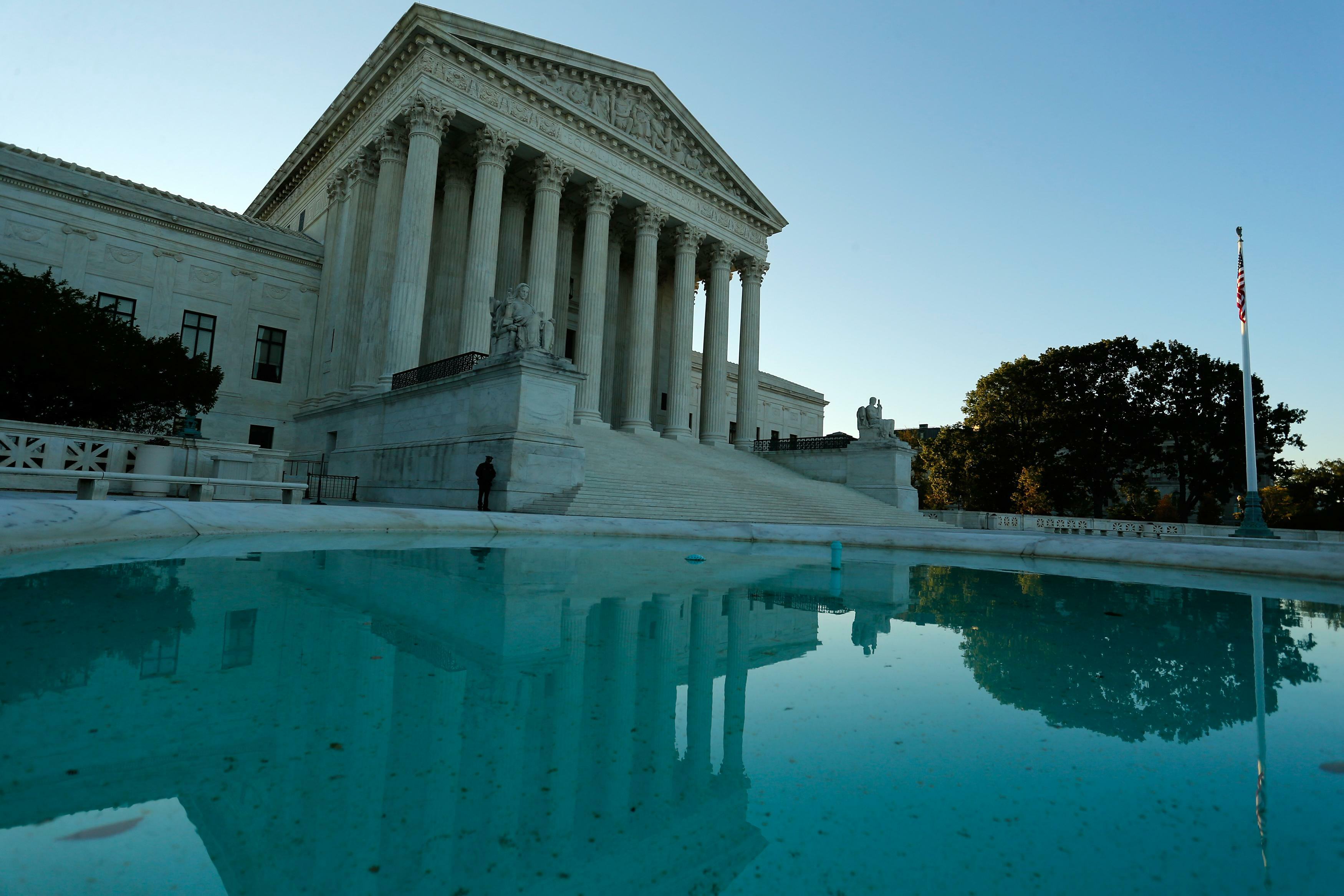
There’s a quiet revolution going on in the constitutional law of guns. Since the Supreme Court declared gun ownership a fundamental right less than a decade ago, the lower courts have been expanding upon that landmark ruling.
Now they've added heightened constitutional protection for gun sellers, including potential exemption from zoning laws. It’s as though the Second Amendment is on its way to joining the First Amendment in a special, preferred position among the panoply of constitutional rights.
The evolution of gun rights has an internal legal logic to it. The contemporary story starts in 2008 with the case of D.C. v. Heller, a 5-to-4 decision in which the Supreme Court declared for the first time that gun ownership was an individual right, not a collective right of “the people” to organse into militias.
The late Justice Antonin Scalia, who wrote the Heller opinion, commented then that “by the time of the founding, the right to have arms had become fundamental for English subjects.” This statement stopped just short of actually finding that the Second Amendment creates a fundamental right -- but the implication was clear.
Two years later, in McDonald v. Chicago, the court made it official, this time in an opinion by Justice Samuel Alito. The court held that gun ownership was a right “fundamental to the Nation's scheme of ordered liberty.” Such rights apply against the states through the due process clause of the Fourteenth Amendment. As a result, the individual gun-ownership right entered the pantheon of core constitutional protections, alongside the right to privacy and freedom from cruel and unusual punishment. In both the Heller and McDonald cases, four liberal justices dissented.
The category of “fundamental right” has a protean character in constitutional law. Once you have such a right, the government can’t ordinarily bar you from exercising it. But that’s not all. When a law appears to burden that right, the courts will scrutinise that law extremely closely, requiring that the government have a compelling interest in enforcing it. In addition, the law must be narrowly tailored to achieve its goal. Consequently, fundamental rights acquire a kind of zone of protection around them.
That zone isn’t absolute. Under some circumstances, privacy rights can be limited in the interests of security.
First among equals in terms of protection is the First Amendment. Courts are vigilant about protecting all aspects of free speech, and worry about laws that might chill self-expression even if they don’t directly regulate it.
The Second Amendment is starting to enter that territory. In an opinion issued yesterday, the U.S. Court of Appeals for the Ninth Circuit held that a zoning law that applies to gun shops in Alameda County, California, must be subjected to heightened scrutiny to ascertain if it’s an unconstitutional limitation on gun ownership. This decision extended the ownership right to a sales right, and introduced a new piece of doctrinal apparatus -- heightened judicial scrutiny – to strengthen the newly created right.
The case was simple. Alameda County has a zoning ordinance that says a shop selling guns can’t be located within 500 feet of a residential home or a school. Three men who wanted to set up shop were denied a zoning variance after the county determined that their shop was 446 feet from the nearest home.
Writing for the Ninth Circuit panel, Judge Diarmuid O’Scannlain, a conservative stalwart, reviewed not just the Heller and McDonald cases, but the 18th-century history of gun ownership. He concluded that a regulation on gun sales would potentially limit the fundamental right to possess firearms – and therefore required a close judicial look.
To reach his conclusion, O’Scannlain had to get around a passage in Heller in which the court specifically noted that “nothing in our opinion should be taken to cast doubt” on “laws imposing conditions and qualifications on the commercial sale of arms.” O’Scannlain said that a ban on gun sales would block the exercise of the right – and held that “the historical right that the Second Amendment enshrined embraces the purchase and sale of firearms.”
The panel then sent the case back to the district court, instructing the trial judge to strike down the ordinance unless it could be shown that gun stores increase crime or have a substantial aesthetic impact.
The court went even further. It said that if it turned out that the 500-foot requirement would bar any gun stores from Alameda County, then an even higher degree of scrutiny would be required – all but demanding that every municipality allow at least some gun stores.
In dissent, Judge Barry Silverman, an appointee of president Bill Clinton, wrote that the case was “a mundane zoning dispute dressed up as a Second Amendment challenge.” There are at least 10 gun stores in the county, he said. And he argued that there is no fundamental right to sell guns.
The panel’s approach makes sense only if the Second Amendment is treated like the First Amendment, with a special degree of protection. An ordinance prohibiting book sales within 500 feet of a residence would indeed get heightened judicial scrutiny. But it’s hard to think of another constitutional right that would be given such a close look automatically. Far more aggressive limits on abortion clinics have been upheld.
The Ninth Circuit could still reconsider the case. The Supreme Court probably won’t hear the issue any time soon. Ultimately, the expansion of the constitutional right to gun ownership is going to depend on who gets confirmed to the Supreme Court. A liberal majority could roll back Heller and McDonald. A conservative one can be expected to expand Second Amendment protections even further.